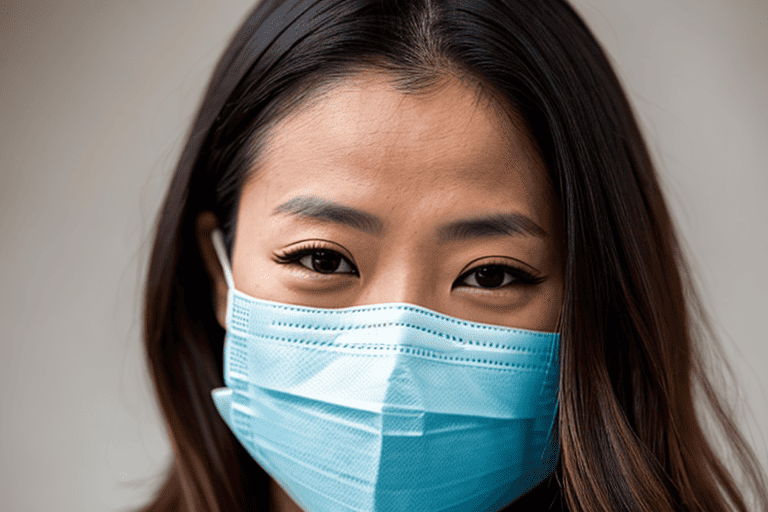As face masks have become an essential part of our daily lives, it's important to understand the potential impact on our skin.
While face masks play a crucial role in protecting our health, they can also cause skin irritation and other issues.
In this article, we will explore the effects of mask wearing on the skin, provide tips on how to mitigate them, and discuss additional strategies to maintain healthy skin during these challenging times.
Effects of Facial Masks on Skin
Maskne (Acne from Mask-Wearing)
One of the most common skin problems associated with mask wearing is "maskne" - acne caused by wearing a face mask. The hot and moist environment created by the mask can lead to clogged pores and an increase in acne breakouts, especially for those with sensitive or combination skin. This environment also encourages the growth of bacteria, further contributing to acne formation.
Dryness and Dehydration
Wearing a face mask can also cause dry skin due to the friction between the mask and the skin's surface. This can lead to peeling skin, a compromised skin barrier, and an increase in dead skin cells. A weakened skin barrier can make the skin more susceptible to environmental aggressors, leading to increased sensitivity and irritation.
Irritation and Sensitivity
Some individuals may experience skin irritation and sensitivity as a result of mask wearing, particularly if they have an allergic reaction to the materials used in the mask. This can lead to redness, itching, and even skin breakdown in severe cases. People with pre-existing skin conditions like rosacea, eczema, or psoriasis may find their symptoms worsened by wearing a mask.
Pressure Sores and Friction
Prolonged mask wearing can cause pressure sores and friction on the skin, especially in areas where the mask is tightest. This can lead to skin conditions such as contact dermatitis and exacerbate existing skin issues. Additionally, this constant rubbing can lead to hyperpigmentation or scarring, especially in people with darker skin tones.
Tips for Mitigating the Effects of Facial Masks
Choose the Right Mask Material
Selecting the appropriate mask material is essential to reduce skin irritation and other adverse skin reactions. For those with sensitive skin, opt for a soft, breathable fabric like cotton or silk. Cloth masks are generally gentler on the skin than surgical masks. Ensure the mask fits comfortably and does not rub against the skin.
Proper Mask Hygiene
Maintaining good mask hygiene can help prevent skin problems associated with mask wearing. Wash your cloth mask regularly to remove dirt, sweat, and bacteria that can cause skin irritation. Replace disposable masks as recommended, and avoid reusing them. It's also essential to wash your hands before handling your mask and avoid touching your face while wearing it.
Skincare Adjustments
Adapting your skincare routine can also help mitigate the effects of mask wearing on your skin. Use a gentle cleanser to remove impurities and a moisturizing cream to maintain your skin's natural moisture barrier. For very dry skin, consider using a richer moisturizing cream to provide additional hydration. Additionally, avoid using harsh exfoliants or products with high concentrations of active ingredients that may exacerbate skin irritation under the mask. This depends on the skin sensitivity of each individual.
Addressing Specific Skin Concerns
It's important to address any skin concerns that arise as a result of wearing face masks. If you experience maskne, incorporate acne-fighting ingredients like salicylic acid or benzoyl peroxide into your routine. For skin irritation or an allergic reaction, use fragrance-free, hypoallergenic products to minimize the risk of further irritation. You can also consider using a barrier cream to protect your skin from friction and irritation caused by the mask.
Be Mindful of Makeup Use
While wearing a mask, consider reducing or avoiding makeup use, especially in the areas covered by the mask. Makeup can clog pores and contribute to maskne, irritation, and other skin issues. If you must wear makeup, opt for non-comedogenic, oil-free products that are less likely to cause breakouts or irritation.
Consult a Dermatologist
If you experience severe or persistent skin issues related to mask wearing, consult a dermatologist for professional advice and tailored treatment options. A dermatologist can help identify the cause of your skin problems and recommend specific products or treatments to address your individual needs. Similarly, you can book a consultation or a sensitive skin facial with Caring Skin.
Conclusion
While wearing face masks is essential to protect our health, it's crucial to be aware of the potential impact on our skin. By choosing the right mask material, practising proper mask hygiene, adjusting your skincare routine, and following additional strategies discussed in this article, you can minimize the adverse effects of mask wearing on your skin. Remember to listen to your skin's needs and consult a dermatologist if you experience severe or persistent skin issues related to mask wearing.







